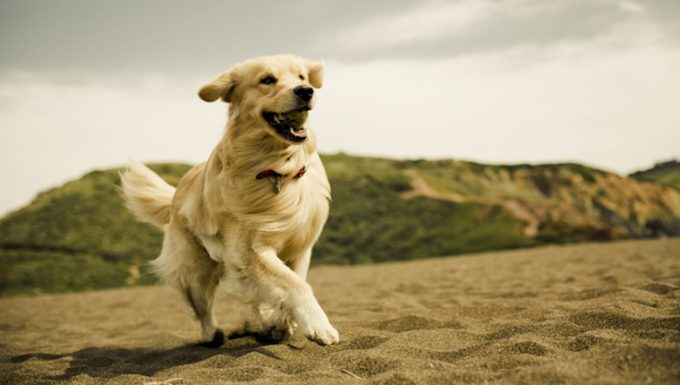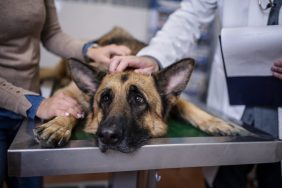Hereditary muscle disease (non-inflammatory myopathy) in Labrador Retrievers is caused by muscle fiber problems. The condition causes muscle weakness.
Specifically, the condition affects Labrador Retrievers.
The condition is hereditary. This means a dog is born with it.
The condition is different to exercise induced collapse in Labrador Retrievers. You can read about that condition here.
If you see the signs of the condition in your Labrador Retriever, then get to a veterinarian for a proper diagnosis and treatment.
Here’s what you should know about the symptoms, causes, and treatments for the condition.
Symptoms of Hereditary Muscle Disease (Non-inflammatory Myopathy) in Labrador Retrievers
The condition produces a range of symptoms. For example, some of the most common symptoms include:
- Laying down all the time
- Arched back
- Bad posture
- Swelling around muscles
- Collapsing suddenly
- Muscle weakness
- Non-typical gait
Causes of the Condition in Labrador Retrievers

The cause of the condition is inherited. This means that a dog is born with it.
Generally, symptoms appear around the age of three-to-four months.
Treatments for the Condition in Labrador Retrievers
Firstly, your vet will ask about your dog’s symptoms. Secondly, your vet will ask about your dog’s full medical history. This will include any issues specific to Labrador Retrievers.
Thirdly, a full physical examination will be carried out. Additionally, blood and urine tests will be taken.
Ultimately, a muscle biopsy can be ordered to confirm the condition.
Generally, treatment for the condition targets the symptoms. For example, the supplement L-carnitine can improve muscle strength.
Additionally, it is best to keep your dog away from very cold conditions. This is because the cold can aggravate the condition.
Have you ever cared for a dog who suffered from this condition? How did your vet help your dog recover? Let us know in the comments section below.









